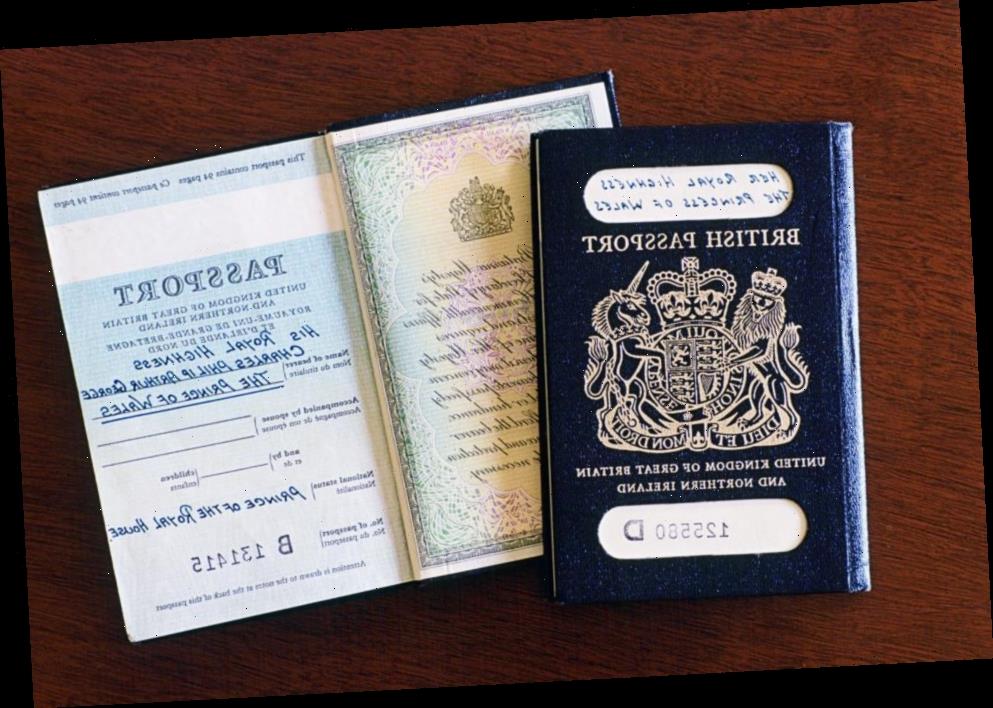OLD school British passports are set to be issued after the country quits the EU.
The UK is ditching its European Union-style burgundy passports and returning to traditional British blue.
Are blue passports coming back after Brexit?
The new blue passport design will be phased in over a number of months after Brexit Day and not be subject to ongoing post-Brexit negotiations.
If you renew your passport during this initial period, you may be issued with either a blue or a burgundy British passport.
Both styles of passport will be equally valid for travel.
During the transition period after January 31 Brexit day, which is due to run from February 1, 2020, to January 1, 2021, all current rules on travel to the EU will be the same as before.
When will I get a new blue passport?
According to Gov.co.uk, a new blue passport design will be phased in from early 2020 over several months.
By mid-2020, all new British passports will be blue.
If you renew your passport during this initial period, you may be issued with either a blue or a burgundy British passport.
But you won’t be able to state a preference for either colour.
All colours of passport will be equally valid for travel.
Who designed the new blue passports and where will they be made?
British company De La Rue will no longer produce British passports.
Instead, the lucrative business will be handed over to French-Dutch firm Gemalto.
De La Rue produced its first passport for Britain back in 1915.
The decision sparked outrage among Tory MPs who accused the Home Office of "a national humiliation".
How have UK passports changed over time?
The earliest passports were issued under the reign of Henry V in 1414, but it was not until 1915 that the first modern-style British passports were available.
They included a photograph and signature and consisted of a single piece of paper that folded out and sat between cardboard covers.
The first blue passport in the format of a book was issued in 1921 – it had 32 pages and was written in French.
In 1988 the first burgundy coloured machine-readable passports were issued in the UK following the common format introduced by the European Economic Community.
A decade later, the first digital UK passport was introduced which included a digital image of the photograph and signature.
By 2006 the first biometric passports were issued with an electronic chip featuring the holder’s data.
And in 2008 the first ePassport gates were introduced in the UK.
There are now around 240 ePassport Gates operational, covering 21 air and rail terminals, helping to speed up arrivals and improve border security.
The national identity: A timeline showing the history of the UK passport
THE first passport-type papers appeared in 1414 with a "safe conduct" document referred to in an Act of Parliament in Henry V's reign.
1540: Travel papers are called passports for the first time.
1641: Oldest surviving British passport was issued.
1794: The Home Office takes control of issuing them in a role it still has today.
1835: Row breaks out over "degrading" demands for British passports to include physical descriptions.
1858: Passports are written in English for the first time. They had been in French, the official language of diplomacy.
1915: Passport books similar to those we use today were first issued.
1920: Our iconic blue book created.
1972: Watermarks were introduced.
1975: Laminated photos were added to help prevent pictures being switched.
1988: Blue book ordered to be abolished after the EU demands Britain use European Common Format Passport.
1993: The blue passport was ditched.
2002: Famous last-minute London Passport Office leaves Petty France, Westminster, for Victoria.
How long is my European Union passport valid for?
Every passport issued by the UK will continue to be valid as a EU travel document until the end of 2020.
According to Abta: "Everything will remain the same and you can can continue to travel as you do now until at least the end of December 2020."
From the date of EU departure, all current British passports will still be valid as a UK travel document, but will no longer have the rights associated with EU membership.
The very last EU British passport will run out by the beginning of 2030.
Source: Read Full Article


